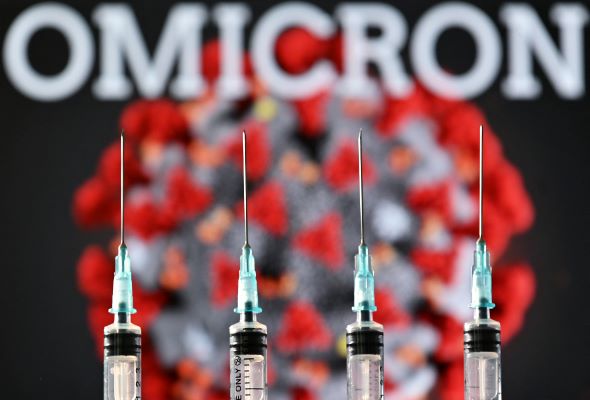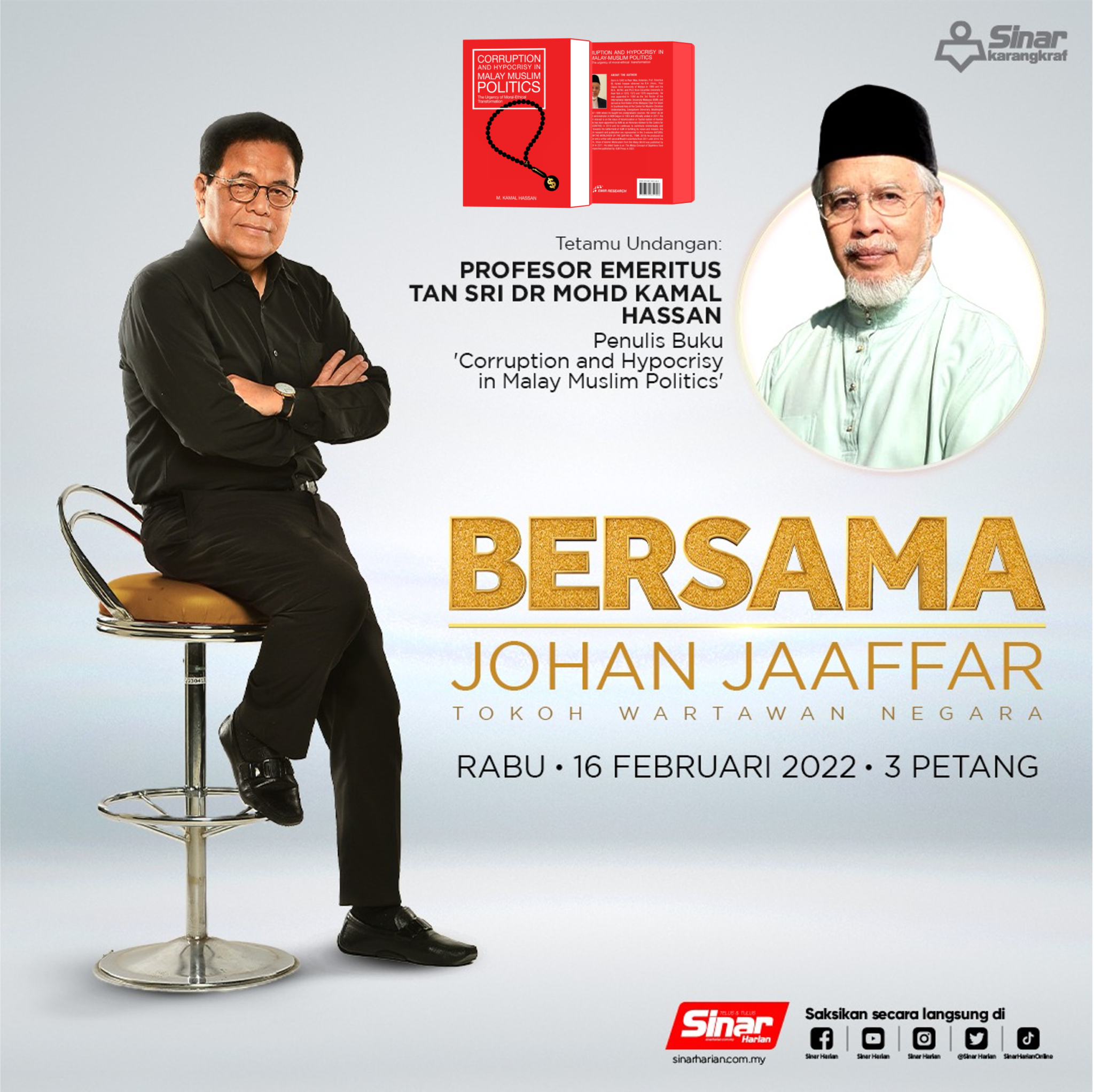Published in The Malaysian Insight, Asia News Today, Penang Travels, Focus Malaysia & New Straits Times, image by Rstreet.org.
The National Recovery Council’s (NRC) recommendation for the international borders to be fully reopened without mandatory quarantine effective from March 1 might be welcoming news for business travellers and the tourism industry. However, the rising number of Covid-19 cases on the back of the Omicron wave during recent weeks has raised concerns among health experts once again.
Over one week of the Chinese New Year (CNY) festive season, Malaysia’s Covid-19 cases rose at an accelerated speed – from 5,720 on February 3 to 20,939 on February 11 – representing a whopping 266% increase.
Even former Prime Minister Tan Sri Muhyiddin Yassin, who is currently serving as NRC Chairman, tested positive for Covid-19 the next day after chairing the NRC meeting on February 8.
As of February 14, the country’s Covid-19 infectivity rate or R0 stands at 1.43. Ironically, Labuan which was the first to be declared “Covid-19 free” now has the highest R0 level of 1.90, followed by Sarawak (1.61), Sabah (1.60), Penang (1.44), Perlis (1.43), Pahang (1.39), Selangor (1.37), Johor (1.35), Kelantan (1.35), Kedah (1.35), Terengganu (1.34), Negeri Sembilan (1.34), Putrajaya (1.30), Perak (1.27), Kuala Lumpur (1.22), and Melaka (1.19).
This indicates that a person who has contracted Covid-19 will transmit the virus to an average of 1.43 people across Malaysia in general.
As the Omicron variant is about three to four times more transmissible than Delta, Malaysia expects to record more Covid-19 cases in the days to come.
Instead of reaching 22,000 by the end of March, the daily Covid-19 cases exceeded the initial prediction, i.e., 22,802 on February 12. It is much earlier than expected by the Health Director-General of Malaysia Tan Sri Dr Noor Hisham Abdullah.
The rising Covid-19 positive cases also resulted in panic buying. Instead of purchasing small amounts, more Malaysians began buying Covid-19 Rapid Test Kit-Antigen (RTK-Antigen) self-test kits in bulk (i.e., 100 to 200 kits) since last week, as reported by The Malaysian Reserve under its headline titled, “Covid-19 self-test kits shortage in the market” (February 11, 2022).
Here comes the dilemma for Malaysia.
Even as Malaysians anticipate having a better 2022 ahead, they still have to allocate more money to purchase rapid self-test kits for safety and precaution purposes.
As there would no longer be the reintroduction of lockdown and inter-state travel ban measures, Malaysians have to self-regulate. With Health Minister Khairy Jamaluddin’s recent recommendation for employers to implement work from home (WFH) policy or rotation system, more companies are expected to follow suit to minimise the risk of infection.
Hard-hit sectors such as the small and medium-sized enterprises (SMEs), hospitality and tourism sectors continue to be overshadowed by a slow recovery on the one hand and uncertainty on the other hand.
Rising consumer price inflation – due to domestic and external supply-chain and supply-side issues that require the proper policy response – has further eroded the purchasing power among Malaysians.
In other words, raising the Overnight Policy Rate (OPR) as the customary or conventional response to inflation (at this time) will not be helpful as the economy is not overheating or near to closing the output gap (the difference between potential and actual output based on the available productive resources).
Despite there being a slight drop of the monthly Consumer Price Index (CPI) inflation rate by 0.1%, i.e., from 3.3% in November 2021 to 3.2% in December 2021, food prices rose to 3.2% in December vs 2.7% in November.
Core inflation – which measures changes in the prices of all goods and services but excluding volatile items of fresh food as well as goods controlled by the government – went up to 1.1 per cent in December 2021.
This is expected to moderate by second half of the year as supply-chain/supply-side issues are sorted out (including geopolitical tensions) as well as when cartel activities, i.e., production-fixing (OPEC – geo-economic vicissitudes) and price fixing (US – corporate interests) in oil and gas “tires out” (meaning market “self-corrects” or forced by external, e.g., domestic regulatory, forces including a possible windfall tax).
Coming back to the Omicron surge, it is important that international borders are fully reopened only when the situation is under control or become truly endemic.
Although Malaysia has experienced a fall in both foreign direct investment (FDI) and GDP growth, we should not rush to fully reopen our international borders just as yet.
Since 2018, Malaysia has experienced a steep decline in FDI – from RM 40.4 billion in 2017 to RM 30.7 billion in 2018.
No doubt that FDI during Q4 2021 (RM 24.7 billion) is slightly higher than the first three quarters of last year (RM12.8 billion in Q3 2021 vs RM8.2 billion in Q2 2021 vs RM9.1 billion in Q1 2021), it is still much lower than 2017. In terms of economic growth, Malaysia recorded 3.6% during Q4 2021. Although the latest GDP growth figure is higher than the preceding year (-5.6% in 2020), it is still below the pre-pandemic level (4.4% in 2019).
A combination of the Covid-19 pandemic and uncertain political climate have been the main factors leading to lower FDI and economic growth – which has been evident during the past two years of frequent change of administrations (i.e., from Mahathir to Muhyiddin and currently Ismail Sabri) between 2020 to 2021.
Now, with the incoming Johor poll that will take place within one month (i.e., March 12), it would be advisable for the current administration to reopen the international borders gradually instead of doing in a hurry. This measure would ensure that the local transmission is still kept under control, given the possibility of additional Covid-19 clusters occurring during the upcoming state election campaign.
The following are some policy recommendations from EMIR Research:
- The Immigration Department (JIM) – as the frontliner – need to conduct regular risk assessments and update on the list of high-risk countries at least twice a week due to the ongoing Omicron wave in the world.
- The Malaysian government could re-negotiate with the Singaporean government to arrange for more bus and flight frequencies under the land and air vaccinated travel lanes (VTL) into Malaysia.
This could be a testing ground for Malaysia before fully opening our borders to neighbouring ASEAN countries and Asian countries next, etc.
- The current mandatory quarantine period is based on the categories of vaccination status.
Individuals who are fully vaccinated (with boosters) must undergo a five-day quarantine and will need to take a RT-PCR swab test on the fifth day of the quarantine.
Individuals who are fully vaccinated (without boosters) must be under a seven-day quarantine and will need to take a RT-PCR swab test on the fifth day of the quarantine.
Those who are partially vaccinated or unvaccinated must be under a ten-day quarantine and will need to take a RT-PCR swab test on the eighth day of the quarantine.
It is recommended that longer quarantine period for Malaysians and non-Malaysians coming from high-risk countries be added under a new category – to pre-empt any premature release into the community. At the same time, it is advisable to do genome sequencing as part of our defence against variants and (again) part of (updating) our risk assessments and “horizon scanning and monitoring”.
- MOH is urged to continue working with outside experts for a whole-of-society joined-up effort. The experts could apply artificial intelligence (AI), especially machine learning tools to assisting the government in identifying Covid-19 clusters quickly under the Hotspots Identification for Dynamic Engagement (HIDE) system – that are then updated in updated in MySejahtera. This is to notify people to minimise their presence in the areas/zones concerned or even avoid them. In turn, this will contribute to mitigating and helping to bring down the R0.
In short, the current administration has to ensure the Omicron situation within Malaysia is controllable before declaring a possible move to fully reopening the international borders for economic recovery.
It will also instil confidence in the international community as “wait and see” before travelling to Malaysia for leisure and other activities.
Lastly, Malaysians also need to do their part in wearing masks, applying physical distancing of at least one to two metres apart where possible and necessary, and sanitising regularly. Collective action from both government and citizens would minimise the exhaustion of national health resources and economic damages.
Amanda Yeo is Research Analyst at EMIR Research, an independent think tank focused on strategic policy recommendations based on rigorous research.

